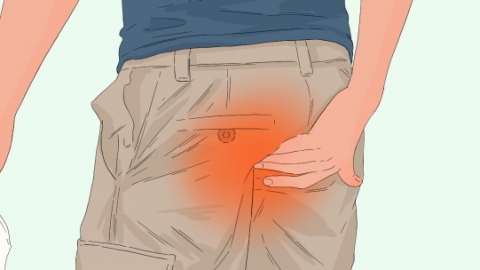What happens if hemorrhoids are left untreated?
In general, if left untreated, hemorrhoids may lead to worsening rectal bleeding, prolapsed and incarcerated hemorrhoidal tissue, perianal infection, severe anal itching, and difficulty with bowel movements. If any discomfort occurs, it is recommended to seek timely medical evaluation and treatment at a reputable hospital. Specific complications are analyzed as follows:

1. Worsening Rectal Bleeding
Hemorrhoids are essentially varicose veins in the anal venous plexus. Without treatment, these dilated veins are prone to friction and injury from stool, leading to increased bleeding. Initially, blood may only appear on toilet paper after defecation; later, it can progress to dripping or even jet-like bleeding. Prolonged bleeding may result in anemia, causing symptoms such as pallor, dizziness, and fatigue.
2. Prolapse and Incarceration of Hemorrhoidal Tissue
As hemorrhoids progress, the hemorrhoidal tissue may protrude from the anus during bowel movements. Without treatment, this prolapse becomes more frequent. In advanced stages, the tissue may no longer spontaneously retract. If not promptly managed, it can become incarcerated, obstructing local blood flow, causing severe pain, and potentially leading to tissue necrosis.
3. Perianal Infection
The mucosal surface of prolapsed hemorrhoidal tissue is susceptible to damage. Bacteria from feces can enter these wounds, leading to perianal infection. Patients may experience redness, swelling, and pain around the anus, possibly accompanied by fever. If the infection spreads, it may develop into a perianal abscess, further worsening the condition.
4. Severe Anal Itching
Hemorrhoids can increase perianal secretions, which chronically irritate the surrounding skin and compromise its protective barrier, resulting in intense anal itching. Patients often scratch involuntarily, further damaging the skin and creating a vicious cycle that significantly affects daily life and sleep quality.
5. Difficulty with Bowel Movements
Pain and itching caused by hemorrhoids may make patients fearful of defecation, leading them to intentionally reduce bowel movement frequency. This causes stool to remain in the intestine for prolonged periods, during which excessive water absorption makes the stool dry and hard, thereby exacerbating constipation. This creates a vicious cycle: "pain → fear of defecation → constipation → worsened hemorrhoids."
If symptoms related to hemorrhoids are noticed, individuals should promptly adjust their lifestyle habits—avoiding prolonged sitting or standing, consuming more dietary fiber, increasing fluid intake, and maintaining regular bowel movements. Seek medical care when necessary to prevent disease progression.







